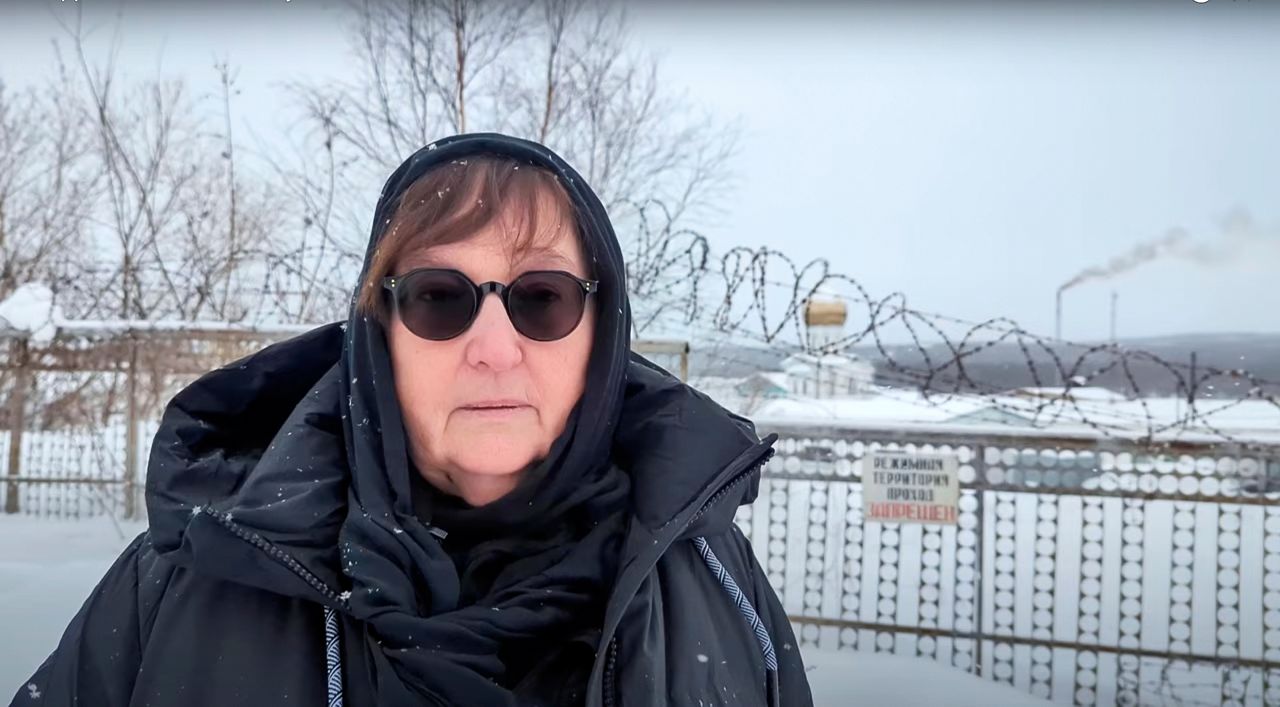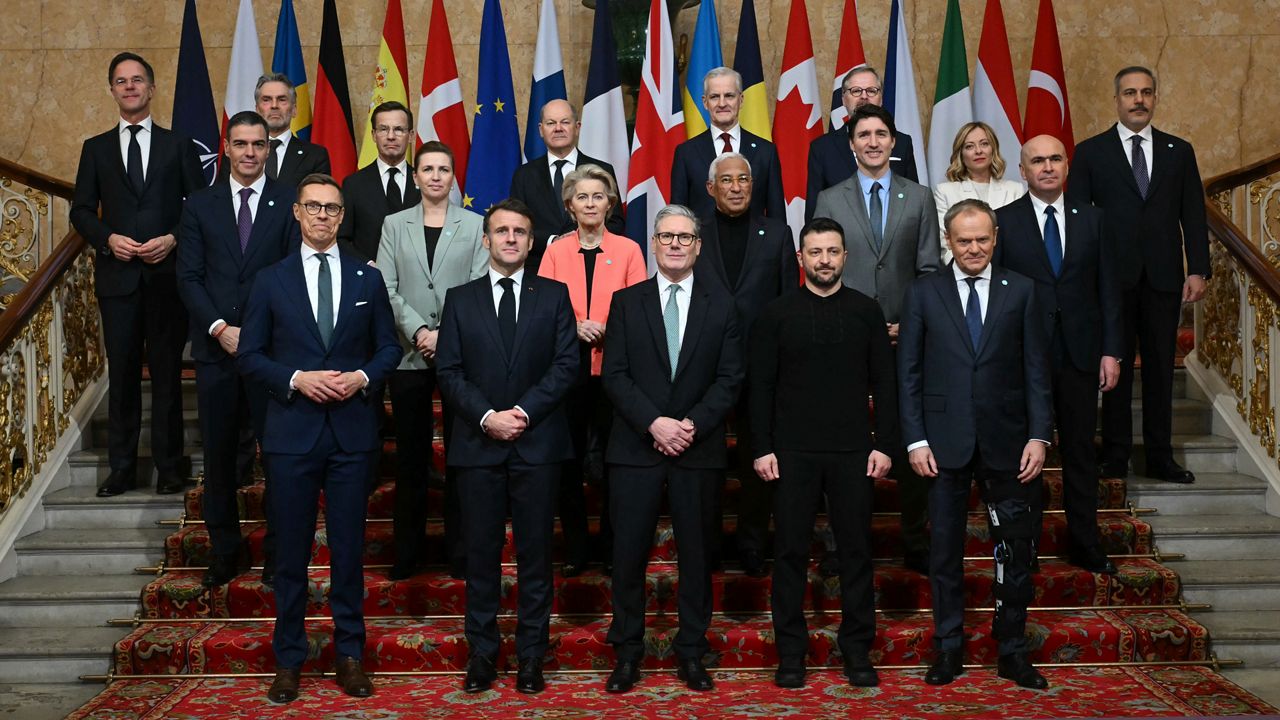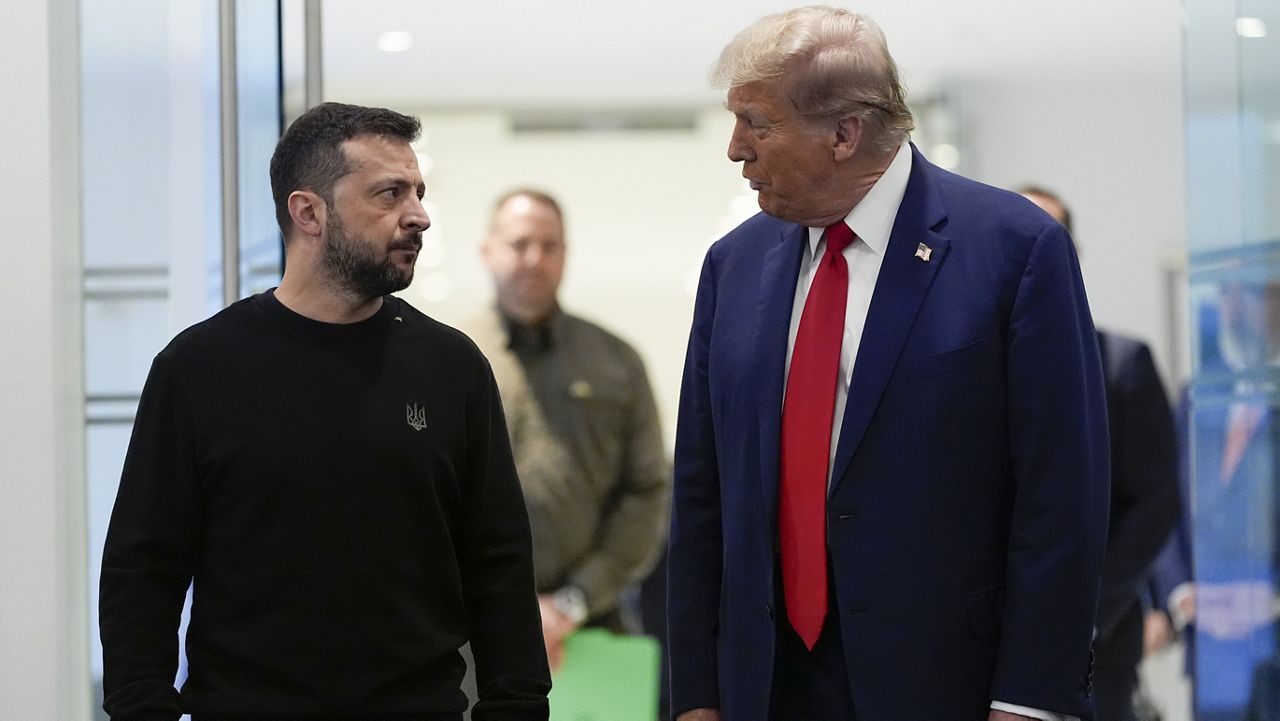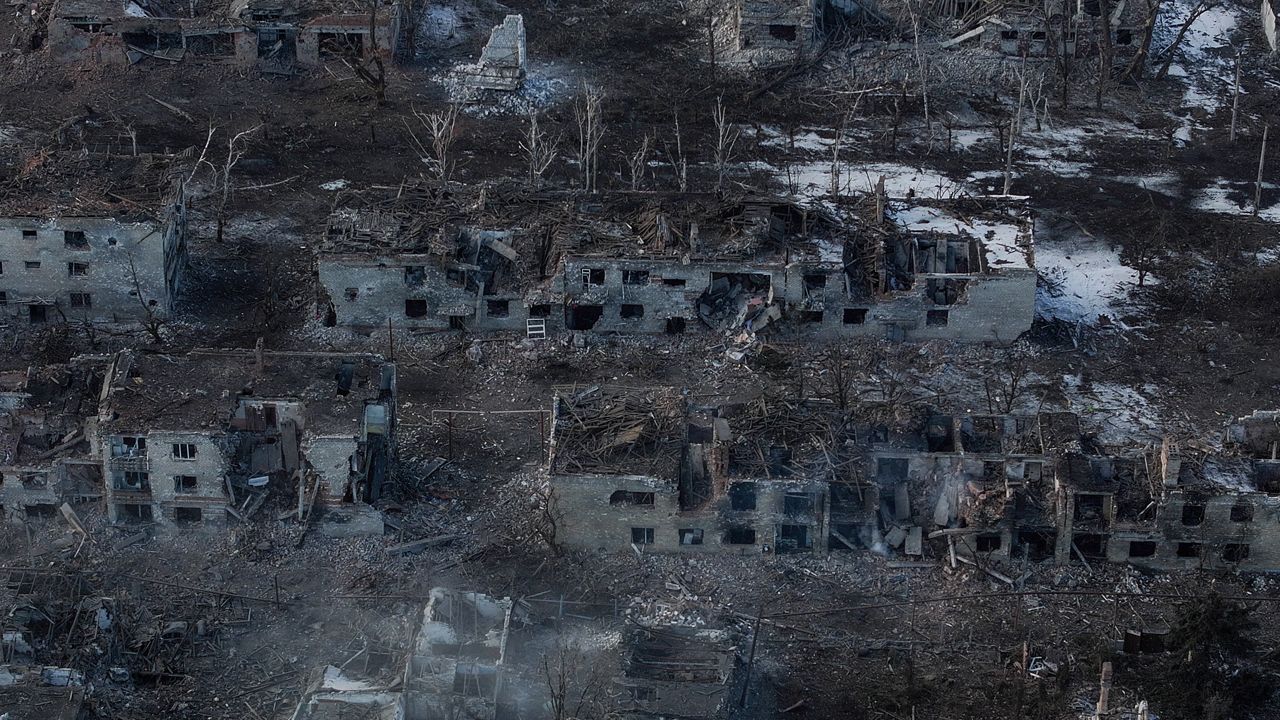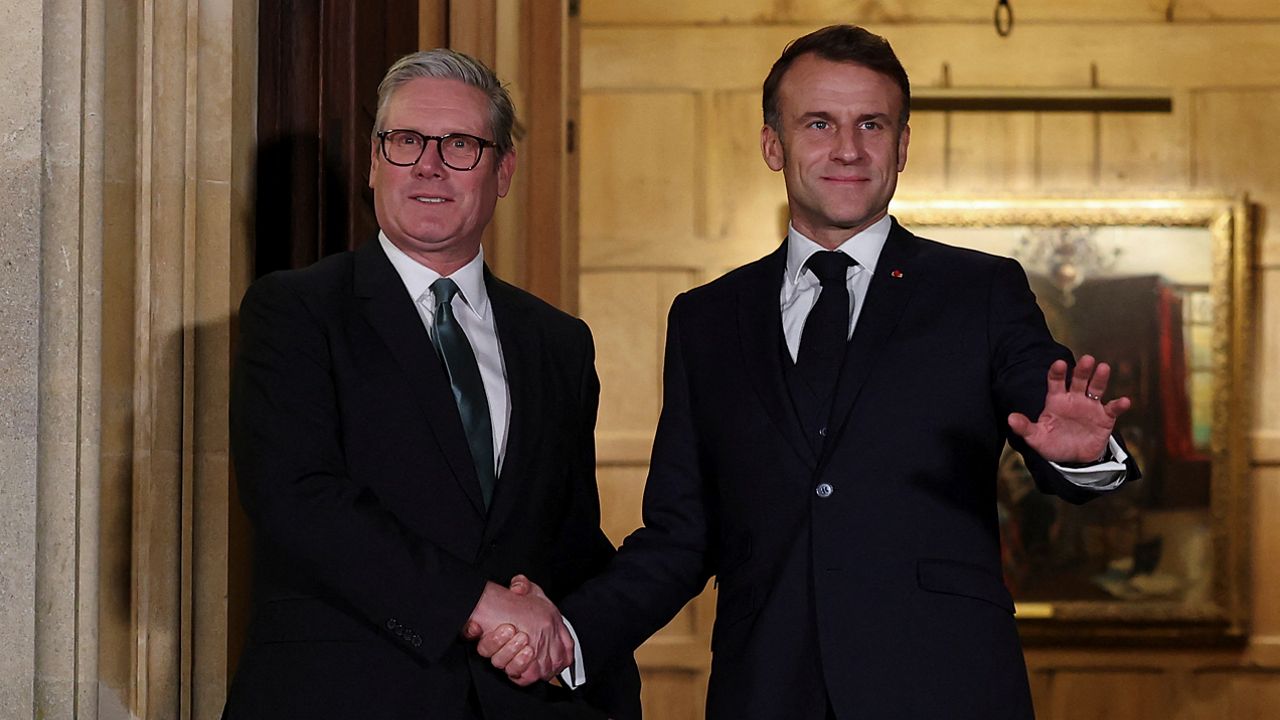Lyudmila Navalnaya, the mother of Russia's top opposition leader Alexei Navalny, said Thursday that she has seen her son's body and that she is resisting strong pressure by authorities to agree to a secret burial outside the public eye.
Speaking in a video statement from the Arctic city of Salekhard, Navalnaya said investigators allowed her to see her son's body in the city morgue. She said she reaffirmed the demand to give Navalny's body to her and protested what she described as authorities trying to force her to agree to a secret burial.
"They are blackmailing me, they are setting conditions where, when and how my son should be buried," she said. "They want it to do it secretly without a mourning ceremony."
Navalny, Russia's most well-known opposition politician, suddenly died in an Arctic prison last week, prompting hundreds of Russians across the country to stream to impromptu memorials with flowers and candles. The Russian authorities have detained scores of them as they seek to suppress any major outpouring of sympathy for Vladimir Putin's fiercest foe ahead of the presidential election he is almost certain to win.
Navalny's mother has filed a lawsuit at a court in Salekhard contesting officials' refusal to release her son's body. A closed-door hearing has been scheduled for March 4. On Tuesday, she appealed to Putin to release her son's remains so that she could bury him with dignity.
In the video released Thursday, Navalnaya said she had spent nearly 24 hours in the Salekhard office of the Investigative Committee, where officials told her that they have determined the politician's cause of death and have the paperwork ready, but she has to agree to a secret funeral. She didn't specify what the cause of death was.
"They want to take me to the outskirts of the cemetery to a fresh grave and say: 'Here lies your son.' I don't agree to this. I want you too — to whom Alexey is dear, for whom his death was a personal tragedy — to have the opportunity to say goodbye to him," she said.
Navalnaya accused the authorities of threatening her: "Looking into my eyes, they say that if I do not agree to a secret funeral, they will do something with my son's body. Investigator Voropayev openly told me: 'Time is not on your side, the corpse is decomposing'," she said, reiterating her demand to release her son's body "immediately."
Navalny's death has deprived the Russian opposition of its best-known and inspiring politician less than a month before an election that is all but certain to give Putin another six years in power. Many Russians had seen Navalny as a rare hope for political change amid Putin's unrelenting crackdown on the opposition.
Since Navalny's death, about 400 people have been detained across in Russia as they tried to pay tribute to him with flowers and candles, according to OVD-Info, a group that monitors political arrests. Authorities cordoned off some of the memorials to victims of Soviet repression across the country that were being used as sites to leave makeshift tributes to Navalny. Police removed the flowers at night, but more keep appearing.
Earlier Thursday, imprisoned opposition figure Vladimir Kara-Murza urged Russians not to give up after Navalny 's death, and he alleged that a state-backed hit squad was taking out the Kremlin's political opponents, according to a video posted to social media.
A British-Russian citizen, Kara-Murza is serving a 25-year sentence for treason at Penal Colony No. 7 in the Siberian city of Omsk. He comments came as he appeared via a video link in a court hearing over a complaint against Russia's Investigative Committee for what he believes were two poisoning attempts against him. He alleges the committee didn't properly investigate the attempts.
Kara-Murza is one of several opposition figures who have either been imprisoned, forced to flee the country or killed. He was convicted of criticizing Russia's invasion of Ukraine and was handed a stiff sentence as part of a crackdown against critics of the war and freedom of speech.
"We owe it ... to our fallen comrades to continue to work with even greater strength and achieve what they lived and died for," Kara-Murza said in the video, which was shared by the Russian Sota telegram channel.
Kara-Murza says the attempts to poison him took place in 2015 and 2017. In the first, he nearly died of kidney failure, although no cause was determined. He was hospitalized with a similar illness in 2017 and put into a medically induced coma. His wife said doctors confirmed he was poisoned.
Kara-Murza's latest hearing came after months of postponements. In January, he was moved from another prison in Siberia and placed in solitary confinement over an alleged minor infraction.
According to the video shared by Sota, Kara-Murza alleged there is a "death squad within the Federal Security Service, a group of professional killers in the service of the state, whose task is to physically eliminate political opponents of the Putin regime."
He said investigative journalists had shown the group of FSB officers participated in his poisoning, as well as Navalny's poisoning with a nerve agent in 2020 and the surveillance of opposition politician Boris Nemtsov before he was shot and killed in 2015 on a bridge near the Kremlin.
On Monday, Ilya Yashin, an opposition figure serving 8 1/2 years in prison for criticizing Russia's war in Ukraine, alleged in a social media post shared on his behalf that Putin had killed Navalny.
"I have no doubt that it was Putin. He's a war criminal," Yashin said. "Navalny was his key opponent in Russia and was hated by the Kremlin. Putin had both motive and opportunity. I am convinced that he ordered the killing."
The Kremlin has denied any involvement in the illnesses and deaths of the opposition figures, including Navalny.
Navalny's widow, Yulia Navalnaya, said Thursday on her Instagram account that she had flown to visit her 20-year-old daughter, Dasha, a student at Stanford University.
"My dear girl, I came to hug you and support you, and you sit and support me" she wrote under a photo of herself and her daughter lying on a carpet.
Describing her daughter as "strong, brave and resilient," Navalnaya said the family would "definitely cope with everything." She also has a 15-year-old son, Zakhar.
Russian authorities have said the cause of Navalny's death is still unknown and have refused to release his body for two weeks as the preliminary inquest continues, his team said. It accused the government of stalling to try to hide evidence.
In a video on Monday, Yulia Navalnaya also accusing Putin of killing her husband and alleged the refusal to release his body was part of a cover-up.
Kremlin spokesman Dmitry Peskov rejected the allegations, calling them "absolutely unfounded, insolent accusations about the head of the Russian state."




